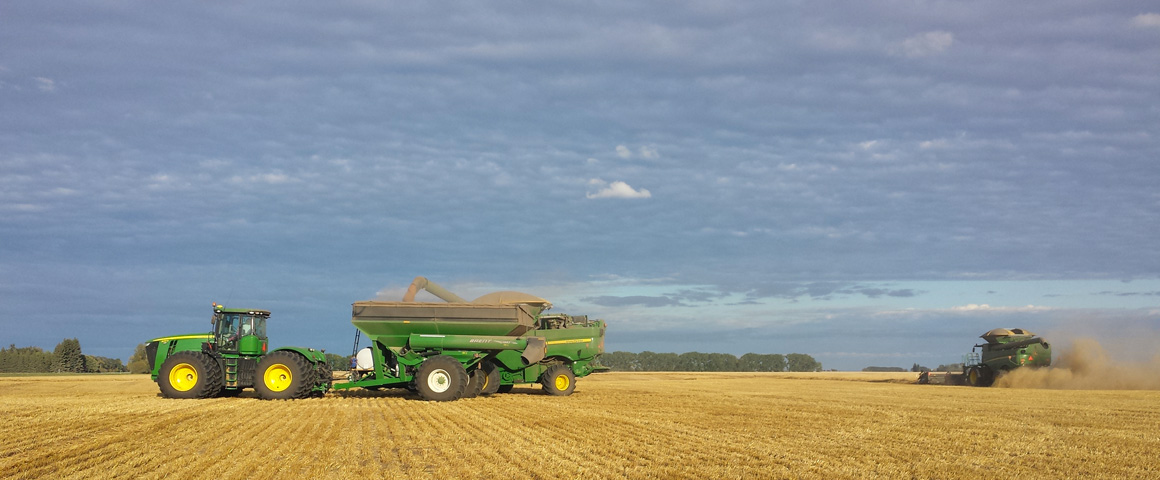“The government of Saskatchewan’s 2017 budget will make life more difficult for farmers and other rural residents while giving corporations and the extractive industries unnecessary tax breaks,” says Cam Goff, Hanley-area farmer and National Farmers Union 2nd Vice President. “With just over a million people in a province that is endowed with incredible wealth, there is no good reason to cut valuable public services and sell off crown corporations and crown lands to balance the books.”
Released on March 22, the 2017-18 budget shuts down the Saskatchewan Transportation Company (STC), sells the Saskatchewan Grain Car Corporation and the Saskatchewan Pastures Program lands, and cuts the Regional Library system’s funding in half.
As an NFU media release points out, “many farmers deal with small businesses in small communities that rely on STC to ship their orders to other small communities. Without STC, doing business will be more costly and time-consuming, to the extent that some of these businesses may not be able to survive.”
“STC provides an essential service between smaller centers. Without the bus, shipping will become more expensive or even impossible. No doubt this will weaken the economic fabric of rural Saskatchewan,” says Goff. “Of course when people come in to the bus depot they often go shopping in town as well. With STC, people who don’t drive can still live in a small community and know they can get to the city if they need to for appointments.”
Ending STC will increase rural isolation, promote depopulation and undermine the rural economy. The NFU says the government should keep STC on the road.
The Saskatchewan Grain Car Corporation (SGCC) is up for sale. Its mandate is to enhance the effectiveness and efficiency of transporting and handling grain in partnership with farmers and community groups and in cooperation with shippers and railroads. While the government says the shortlines will get first option to buy, it also says it will accept the offer that returns the most value to Saskatchewan. It is likely that CP Rail or the railcar leasing company GATX would be able to outbid the shortlines.
“SGCC provides service to farmers, and thus to the whole prairie economy, by leasing out its 900 hopper cars and making sure they are well-maintained. Last year it paid a $2 million dividend to Saskatchewan and helped the province’s 13 shortline railways with grants totalling $900,000,” explains Goff. “It is a money-maker, and has contributed over $20 million in dividends to the government since it was established. If kept, the government would be in position to get another $30 million in dividends over the hopper cars’ remaining lifespan.”
The budget also ends the Saskatchewan Pastures Program, putting the 780,000 acres of crown land farmers have been able to use for summer grazing up for sale.
“The pastures program pays its own way — farmers’ user-fees cover the cost of running the program. The pastures give more farmers a chance to raise cattle, and that helps them support their families and their communities,” says Goff. “Almost 600,000 acres of these pastures is protected for ecological reasons. Keeping it intact is an important way for us to help the climate as well.”
The government says it plans to consult with pasture patrons and Indigenous groups before selling the pastures.
But Goff responds, “Our concern is that the lands would be sold to the highest bidder, maybe farmland investment corporations, that only think about how much money they can make. We are asking the government to reconsider this decision, or at least allow the patron groups enough time to develop a workable proposal.”
The decision to cut provincial funding to the Regional Library system will also harm rural Saskatchewan. Service to local libraries will be cut; some libraries will likely be closed.
“Libraries are important centers in rural communities. They are places where people can gather, connect with one another and with the wider world through the many resources libraries offer,” says Goff. “Impairing the library system will further isolate rural people and reduce our quality of life. The loss of STC compounded with library cuts will make it that much harder for young people to stay in rural communities to farm and raise their families.”
Many other aspects of the budget disadvantage farmers and rural communities, including the reduction of the diesel fuel tax rebate and the elimination of the farm fuel tax rebate on gasoline, and the 6% PST being added to the cost of agricultural insurance premiums.
“While all Saskatchewan residents are faced with resolving the financial mess, the government has not only let big business avoid taking its share of the burden, but has actually added to the corporate sector’s already excessive benefits,” concludes Goff.



